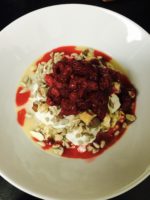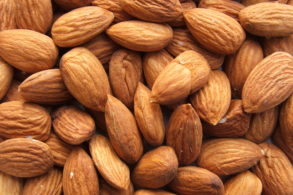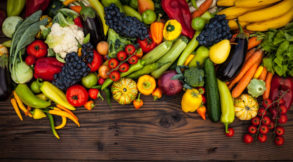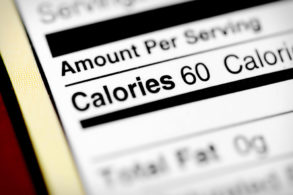Huguette grew up in France in a family where fresh ingredients and healthy meals were  paramount. Her curiosity about different foods and flavours grew as she started traveling the world, first to Israel and then to Asia before finally coming to NYC. She decided to study holistic nutrition and share her passion about the long term impact of real food and lifestyle changes on health. Huguette does not believe in fad diets because ‘they never work in the long run’, she says. Huguette, who has two daughters aged 11 and 13, also has advice for teenagers: “I think it is so important to educate our children about the basis of nutrition and how it impacts on their lives.”
paramount. Her curiosity about different foods and flavours grew as she started traveling the world, first to Israel and then to Asia before finally coming to NYC. She decided to study holistic nutrition and share her passion about the long term impact of real food and lifestyle changes on health. Huguette does not believe in fad diets because ‘they never work in the long run’, she says. Huguette, who has two daughters aged 11 and 13, also has advice for teenagers: “I think it is so important to educate our children about the basis of nutrition and how it impacts on their lives.”
Q: Breakfast is a very important meal for kids and teens as it has positive influence on cognitive performance in school. What would be a healthy breakfast for them?
A: I don’t believe in morning snacks. If you have a good healthy breakfast loaded with proteins, fibers and healthy fats*, that should keep you going until lunch time. It is true that breakfast can be a challenge in many families, but my advice would be don’t give up and try to make a deal with your family: healthy breakfast during school days and on weekends you can cut them some slack.

Tell us about your ideal healthy breakfast.
I have a very good muesli recipe* with yogurt and berries that you can prepare in advance so it is zero stress in the morning. For a savoury option, you can have a toast with avocado, a poached or boiled egg and some spinach. This requires a bit more preparation and is actually a great option for weekend brunch.
Teenagers in middle and high school often eat outside. How can they avoid after-lunch fatigue?
We get our energy from food but not every food is equal. If we want to avoid those ‘coup de barre’ we need to choose the type of foods that will keep us full for longer. Fibers and proteins will help in that respect because they stabilize sugar levels in our blood and that means that we feel satiated for longer. Keep in mind that refined grains are so processed they don’t contain much fibers, minerals or vitamins. My advice: add whole grains to your diet to get more nutrients.
Students are really hungry after school. What kind of snacks can keep them going through homework or sports activities?
 Those are important indeed, but don’t get me wrong. I am not talking about a pack of chips or a pseudo fruit straps. A healthy snack would be a banana, some dried fruit, some seeds and nuts, a yogurt with berries and nuts (if you’re not allergic), some seaweed or a boiled egg that you can easily prepare in advance.
Those are important indeed, but don’t get me wrong. I am not talking about a pack of chips or a pseudo fruit straps. A healthy snack would be a banana, some dried fruit, some seeds and nuts, a yogurt with berries and nuts (if you’re not allergic), some seaweed or a boiled egg that you can easily prepare in advance.
A lot of teenagers become vegetarian. How can we make sure they get all the nutrients they need?
This is becoming a real issue and a source of concern for many parents. Teenagers need sufficient nutrients while they are growing, especially iron and calcium to develop properly both mentally and physically.

The key here is to work with them so they understand how important nutrients are and above all why they have to listen to their bodies. For instance proteins can also be found in lentils, tofu and black beans. Kale, tahini, almond butter and broccoli are loaded with calcium. Tofu, quinoa and pumpkin seeds are packed with iron. I am going to hold a workshop on the topic to make sure they know what food they can eat instead of meat in order to avoid deficiencies.
Talk to us about counting calories. Is it necessary?
We always hear about calories, but to be honest I give more importance to the quality of  food and the list of ingredients on a package than to the number of calories. For example, 100 calories from a handful of almonds will bring you some proteins, fibers and healthy fats, whereas 100 calories from a pack of chips loaded with salt and vegetable oil will not provide much nourishment and will leave you wanting to snack some more. I can also assure you that you will not be feeling hungry 10 minutes after eating a banana or a bunch of almonds.
food and the list of ingredients on a package than to the number of calories. For example, 100 calories from a handful of almonds will bring you some proteins, fibers and healthy fats, whereas 100 calories from a pack of chips loaded with salt and vegetable oil will not provide much nourishment and will leave you wanting to snack some more. I can also assure you that you will not be feeling hungry 10 minutes after eating a banana or a bunch of almonds.
You’ll be leading a number of workshops for Lycée students during our annual Cycle of Nutrition.
I’ll be conducting workshops with students during their regular dialogue ghours. Each one will last from 30 to 40 minutes. These workshops are limited to 10 participants only so registration is required. Interaction and enthusiasm are required too 🙂
I am also planning to launch a 5-day challenge for 10 students willing to eat nothing but real food!
Here’s the schedule:
- Tuesday, October 17: The basis of a balanced diet.
- Thursday, October 19: How to prepare a healthy and balanced lunch.
- Monday, October 23: What to do if you are a vegetarian.
Any other advice you can give us?
Eat a lot of different foods, drink plenty of water, exercise and sleep well!
——————————————-
* Get protein from meat, poultry and seafood but also from more complex carbohydrates such as lentils and other legumes.
Get healthy fats from olive, flaxseed, walnut, grape seed oils, from avocado and oily fish.
Get fibers from vegetables, fruits, oats, seeds & nuts grains and legumes.
My bircher muesli recipe
 Ingredients for the mixture: 500g of oats, 1 liter of organic apple juice & 2 spoons of chia seeds (optional). The soaking process helps the digestion.
Ingredients for the mixture: 500g of oats, 1 liter of organic apple juice & 2 spoons of chia seeds (optional). The soaking process helps the digestion.
Toppings: Organic plain whole milk yogurt, frozen raspberries or any fruit you like, some seeds and nuts, shredded coconut, maple syrup (optional).
Instructions:
Soak the oat and the chia seeds overnight in organic apple juice. You can keep it in the fridge for 5 days.
In the morning put 2 or 3 spoons of the soaked oat, add a couple of scoops of yoghurt, add some fruit and some almonds, nuts, seeds, coconut. Et voilà!
To contact Huguette Lelong, visit her website: http://www.huguettelelonghealthylife.com/
About the Author :
Professeure agrégée de Lettres Modernes et titulaire d’un Master professionnel de Psychologie clinique, Nathalie Anton a été membre pendant trois ans d’une équipe en charge de prévenir la violence en milieu scolaire dans l’académie de Paris. Elle est aussi l’auteur de l’ouvrage L’Art d’enseigner, paru aux éditions Ixelles en août 2012. Quand elle n’est pas en classe, Nathalie aime courir à Central Park et sillonner la ville à vélo l’été et se réchauffer dans les salles de spectacles l’hiver.

